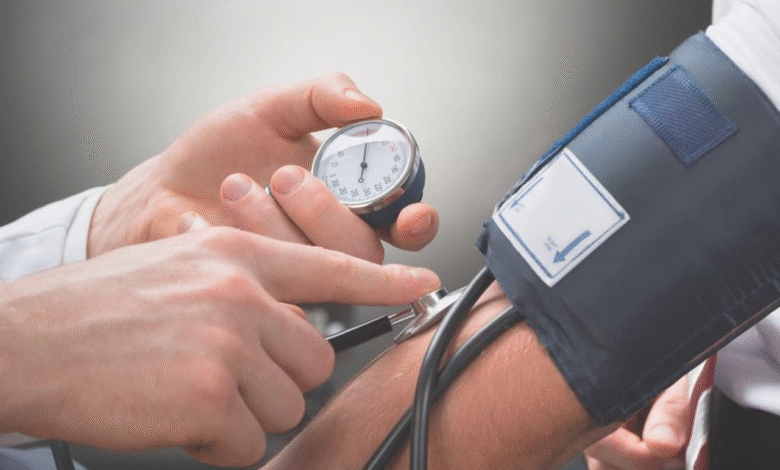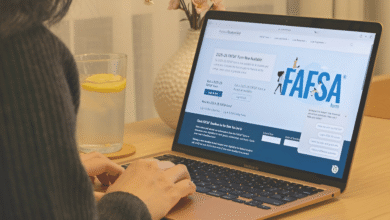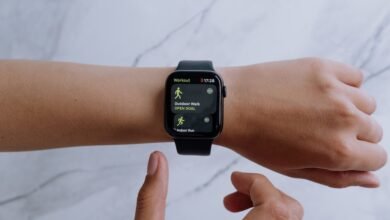How to Lower Your Blood Pressure Naturally
How to lower your blood pressure naturally with diet & lifestyle changes. Discover methods to reduce hypertension without medication.

High blood pressure (hypertension) affects nearly half of all adults, increasing the risk of heart disease and stroke but the good news is that simple, natural strategies can make a significant difference. Learning how to lower your blood pressure naturally through diet, exercise, and lifestyle changes can help you reduce reliance on medication while improving overall health. Research shows that small, consistent adjustments like cutting sodium, boosting potassium, and managing stress can lower systolic blood pressure by 10+ points over time.
This guide explores proven, drug-free methods to manage hypertension, from the DASH diet’s heart-healthy principles to targeted exercises that enhance circulation. Whether you’re looking to prevent high blood pressure or complement medical treatment, these science-backed steps can help you take control of your cardiovascular health starting today.
How to Lower Your Blood Pressure Naturally
Adopt a Heart-Healthy Diet
One of the most effective ways to lower blood pressure is through a balanced diet. The DASH diet (Dietary Approaches to Stop Hypertension) is specifically designed to combat high blood pressure by emphasizing fruits, vegetables, whole grains, and lean proteins. Reducing sodium intake is crucial, as excess salt causes the body to retain water, increasing blood pressure. Incorporate potassium-rich foods like bananas, spinach, and sweet potatoes, as potassium helps balance sodium levels. Additionally, foods high in magnesium (such as nuts and seeds) and calcium (like dairy or leafy greens) support blood vessel function. Avoid processed foods, which often contain hidden salts and unhealthy fats.
Exercise Regularly
Physical activity strengthens the heart, allowing it to pump blood more efficiently. Aerobic exercises like walking, jogging, swimming, or cycling for at least 30 minutes a day can significantly reduce blood pressure. Strength training twice a week also improves cardiovascular health by enhancing circulation. Consistency is key—regular exercise helps maintain a healthy weight, another critical factor in managing hypertension. Even moderate activities like gardening or dancing can contribute to better blood pressure levels.
Maintain a Healthy Weight
Excess weight strains the heart and increases blood pressure. Losing even 5-10% of body weight can make a noticeable difference. Focus on portion control, nutrient-dense foods, and regular physical activity to achieve a healthy weight. Visceral fat, stored around the abdomen, is particularly harmful as it releases hormones that raise blood pressure. Measuring waist circumference can be a useful indicator of heart disease risk.
Reduce Sodium Intake
Most people consume far more sodium than needed, primarily from processed foods, fast food, and canned goods. The American Heart Association recommends no more than 1,500-2,300 mg of sodium per day. Reading nutrition labels, cooking at home, and using herbs and spices instead of salt can help lower sodium intake. Over time, your taste buds will adjust, making low-sodium foods more enjoyable.
Limit Alcohol and Quit Smoking
Excessive alcohol consumption raises blood pressure and damages the heart. Men should limit drinks to two per day, and women to one. Smoking causes immediate blood pressure spikes and long-term artery damage, increasing heart disease risk. Quitting smoking and moderating alcohol can dramatically improve cardiovascular health and overall well-being.
Manage Stress Effectively
Chronic stress contributes to hypertension by keeping the body in a constant “fight or flight” mode. Techniques like deep breathing, meditation, yoga, and mindfulness can help lower stress levels. Finding hobbies, spending time in nature, and maintaining a supportive Social network also reduce stress. Prioritizing mental health is just as important as physical health in managing blood pressure.
Get Enough Quality Sleep
Poor sleep disrupts hormones that regulate blood pressure, leading to hypertension. Aim for 7-9 hours of uninterrupted sleep per night. Sleep apnea, a condition where breathing stops intermittently, is strongly linked to high blood pressure and should be treated promptly. Establishing a regular sleep schedule, reducing screen time before bed, and creating a calm sleep environment can improve sleep quality.
Increase Potassium-Rich Foods
Potassium counteracts the effects of sodium and relaxes blood vessel walls. Foods like avocados, oranges, beans, and fish are excellent sources. However, those with kidney disease should consult a doctor before increasing potassium intake.
Try Natural Supplements
Explore Proven Herbal Options
Consider supplements like garlic extract (may lower BP by 7-16 mmHg), hawthorn berry (supports circulation), and hibiscus tea (rich in antioxidants that relax blood vessels). Always consult your doctor before starting new supplements, especially if taking medications.
Boost Key Minerals for Heart Health
Magnesium (400-500mg daily) helps relax blood vessels, while potassium balances sodium effects. CoQ10 (100-300mg) may improve blood vessel function. Opt for food sources first (leafy greens, nuts, avocados) before supplements.
Understand Omega-3 Benefits
Fish oil supplements (1,000-2,000mg EPA/DHA daily) can reduce inflammation and slightly lower BP. Vegetarian options include flaxseed oil or algae-based omega-3s for similar benefits.
Time Your Intake for Best Results
Take supplements consistently with meals for better absorption. Monitor BP changes for 4-6 weeks before assessing effectiveness. Avoid mega-doses, which can cause side effects.
Combine with Lifestyle Changes
Supplements work best alongside diet improvements, exercise, and stress reduction. They’re helpers, not replacements, for healthy habits. Regular BP monitoring helps track their impact.
Monitor Blood Pressure Regularly
Track Consistently for Better Control
Check your blood pressure at the same time daily (morning and evening) using a validated home monitor. Keep a log to spot patterns and share trends with your doctor for personalized adjustments.
Understand Your Numbers
Normal BP is below 120/80 mmHg. Elevated (120-129/<80) requires lifestyle changes, while 130+/80+ may need medical intervention. Note that stress, caffeine, or activity can cause temporary spikes.
Use Proper Technique for Accuracy
Sit quietly for 5 minutes before testing, with feet flat and arm at heart level. Avoid talking or crossing legs during measurement. Take 2-3 readings 1 minute apart and average them for reliability.
Act on the Data
If readings are consistently high, prioritize hydration, reduce sodium, and increase movement. Contact your healthcare provider if numbers stay elevated despite lifestyle changes.
Combine Monitoring with Prevention
Regular checks work best alongside a heart-healthy diet, exercise, and stress management. Early detection of upward trends allows quicker, more natural interventions.
Read More: How to Win Scholarships in the U.S. Without a Perfect GPA
Conclusion
Learning how to lower your blood pressure naturally is a powerful step toward long-term heart health and overall well-being. By making mindful lifestyle changes such as adopting a nutrient-rich diet, staying active, managing stress, and avoiding excessive sodium and alcohol you can significantly reduce hypertension risks without relying solely on medication. These science-backed strategies not only help regulate blood pressure but also boost energy, improve mood, and enhance longevity.
Consistency is key; small, daily habits add up to lasting results. Whether you start with brisk walks, potassium-packed meals, or deep-breathing exercises, every positive choice brings you closer to healthier blood pressure levels. Remember, these natural approaches work best when combined with regular check-ups and medical guidance. Take control of your health today your heart will thank you for years to come.
FAQs
What’s the fastest way to lower blood pressure naturally?
Reduce sodium intake, drink hibiscus tea, practice deep breathing, and take short walks—these can provide quick (though temporary) relief.
Which foods lower blood pressure the most?
Focus on potassium-rich foods (bananas, spinach), omega-3s (salmon), nitrates (beets), and dark chocolate (70%+ cocoa).
Can exercise replace blood pressure medication?
While exercise helps (aim for 150 mins/week), never stop medication without consulting your doctor—lifestyle changes work best alongside treatment.
How does stress affect blood pressure?
Chronic stress tightens blood vessels; try meditation, yoga, or 5-minute breathing exercises daily to counteract this.
How long until natural methods show results?
Most people see improvements in 2–4 weeks, but consistency for 3+ months yields the strongest, lasting effects.







